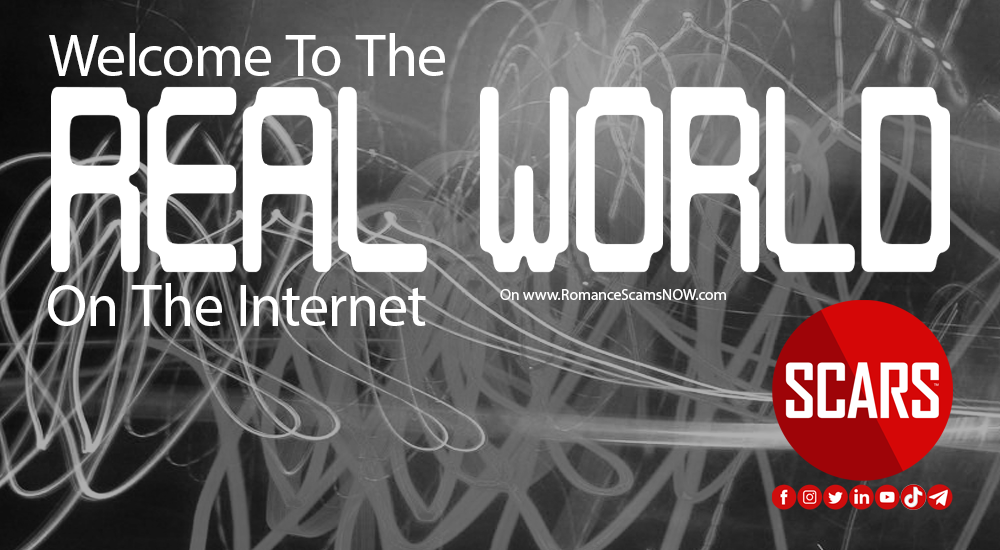Why Doesn’t The World Stop Organized Crime Online?
This is one of those “Be Careful What You Wish For Moments.” Or it could also be described as one of those Unforeseen Consequences!
Let’s start with how the real world is on the Internet.
Once upon a time, the United States invented the Internet for itself. In fact, our founder was on the Internet (then called the ARPAnet) in 1981.
AOL became the first major online service provider and by 1992 spanned North America and Europe. (We had a forum or chat group on AOL discussing scams in 1991.)
Then along came the Clinton’s, and they decided this was too great for the U.S. to keep for itself! That was a good thing, except they gave NO THOUGHT to what could happen!
Bill Clinton also signed into law something called the Communications Decency Act in 1996. This law gives a “Get Out Of Jail Free Card” to website publishers and ISP (Internet Service Providers). Meaning that these companies are not responsible for what people did online (such as scammer reports or comments on this website). It was intended to promote free speech online, in comments, blogs, and more. Unfortunately, it is the main reason that Facebook & dating websites disregard fake profiles since they have no established liability for them under the CDA (other countries also have equivalent laws as well).
Fast forward to 2004, Obama gets elected. Prior to that, we had a measure of control online and scammers were very limited. However, the Obama administration took a complete “Hands Off” attitude towards Africa and Western Africa in particular. Thus, for 8 years there was very little done about online crimes around the world, specifically from Western Africa. (Remember that Obama’s father was from Kenya.)
Next, our story moves on to the former U.S. Secretary of State Hillary Clinton. During her term as Secretary of State, Hillary Clinton had plans to sanction Nigeria (and other West African countries for multiple reasons, including online fraud). One of the most important tasks she was going to perform, would be to label the Nigerian Terrorist Group “Boko Haram” as a terrorist organization. Then comes a Speaking Engagement Fee from the Nigerians for $500,000 each for Bill Clinton. Additionally, A senior official of the Clinton Foundation, the politically well-connected charity started by former US President Bill & Hillary Clinton, obtained numerous State Department favors for Gilbert Chagoury, the Nigerian-Lebanese businessman convicted of helping the former head of state Sani Abacha steal billions of public dollars from the Nigerian People. Some believe that these are also the men behind many of Nigeria’s more organized scammers. Needless to say that shortly after the donations and speaking engagements, Hillary Clinton backed off from any sanctions against Nigeria or any other West African countries.
Now we arrive at 2016, when Obama Administration gives away the Internet, from the U.S. Control to a consortium of International Countries embodied by the Governing Board of ICANN (Internet Corporation For Assigned Names and Numbers). This would be fine if they actually were interested in International law and order. In fact, it appears to be the opposite, they are far more concerned with open borders, vastly expanding broadband, and turning a blind eye to the real abuses that occur daily online.
Therefore, we find ourselves without any real control of the law on the internet. One option would have been to enforce blockades of countries that allow unrestricted criminal behavior, but ICANN has no interest in such approaches.
In the end, this vast uncontrolled medium that was created for good is not only out of control, but the only actual controls being discussed keep the scammer with free access and only limits our own use.
While the internet itself is now beyond reach, individual nations are also restricted from imposing blocks (unless you are a dictatorship, and they get away with whatever they want). If the United States (for example) attempted to restrict access by African Countries, that could be considered a crime under the World Trade Organization or other world bodies. There is even some concern that websites that block Africa could be accused of being Racist in the current political climate.
In the end, we are powerless to change the landscape without changing the national will of the countries involved.
SCARS has been working to change laws and help politicians find the political will to impose more sanctions against African countries, and to enact stronger laws in the U.S. that would extend enforcement beyond the border. This will be a long battle with victories and setbacks, but as long as the law and order mindset remains in Washington we will make progress.




Please Leave A Comment - Tell Us What You Think About This!